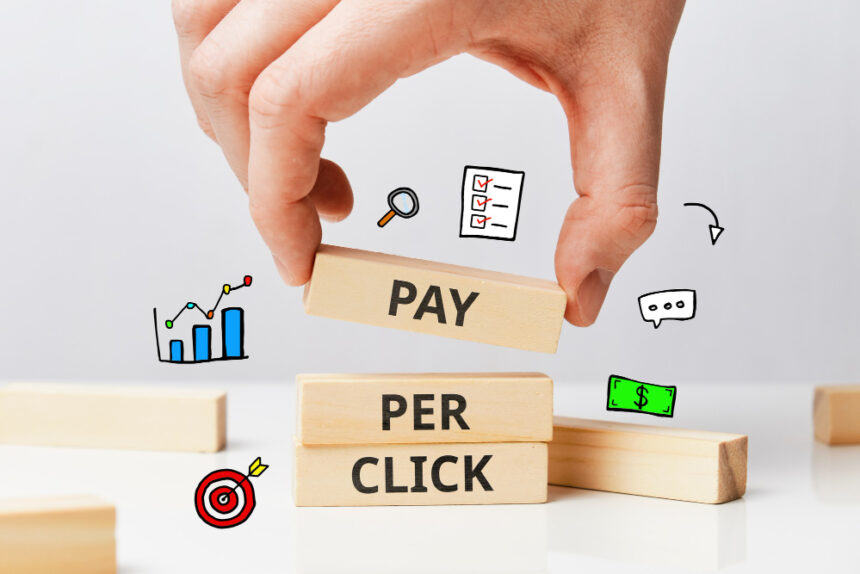Pay-per-click (PPC) advertising is a powerful tool in the digital marketing world, enabling businesses to achieve immediate visibility, drive traffic, and generate leads. However, for your PPC campaigns to be successful, one crucial factor comes into play: setting clear and measurable PPC goals. Whether you’re looking to increase brand awareness, drive sales, or enhance lead generation, defining your objectives should always be your first step when considering partnering with a PPC agency.
In this comprehensive guide, we’ll explore the importance of setting PPC goals, how to define them effectively, and how those goals influence your decision in selecting the right PPC agency. By the end of this post, you’ll have the knowledge needed to make informed decisions that will help you achieve greater success in your PPC campaigns.
Why Defining Your PPC Goals Matters
Before you dive into the world of PPC advertising, it’s essential to understand why goal setting is crucial. Setting goals for your PPC campaigns acts as a compass, guiding every decision and strategy throughout the process. It provides a clear direction for your efforts, helping you focus on what truly matters and ensuring that your time, money, and resources are well-spent.
Without clearly defined PPC goals, you risk wasting money on campaigns that don’t align with your business’s needs or fail to deliver tangible results. Additionally, defining goals early on allows you to set up tracking mechanisms to measure the success of your campaigns, ensuring you can make data-driven decisions and optimize for better performance.
Understanding Different Types of PPC Goals
There is no one-size-fits-all when it comes to PPC goals. The goals you set will depend on your specific business needs, objectives, and the stage you’re in within the customer journey. To help you decide on the right goals for your PPC campaigns, let’s break them down into categories:
Brand Awareness
Brand awareness is often the first goal that businesses set when running PPC campaigns. If your business is relatively new or you’re looking to expand your reach, running PPC ads focused on increasing brand visibility can help you introduce your brand to new audiences.
The primary aim here is to make potential customers aware of your product or service. Metrics like impressions and reach are often used to track the effectiveness of these campaigns. While this goal may not directly result in immediate conversions, it’s an essential step in building the foundation for future success.
Lead Generation
For many businesses, lead generation is a top priority in PPC advertising. If you’re looking to grow your customer base or increase sign-ups for a service, lead generation should be your primary goal.
Lead generation campaigns typically include strategies to capture the contact information of potential customers, such as email addresses or phone numbers. This allows you to nurture relationships and move prospects through the sales funnel. In this case, tracking metrics like conversions, form submissions, or sign-ups will give you valuable insights into the effectiveness of your campaigns.
Sales and Conversions
For e-commerce businesses, the ultimate PPC goal is often driving sales and conversions. This is where you want to see tangible financial results from your advertising efforts. Sales-focused campaigns are designed to drive high-intent customers to your product or service pages, ultimately encouraging them to complete a purchase.
Tracking metrics like cost per acquisition (CPA), return on ad spend (ROAS), and conversion rate are essential for evaluating the success of these campaigns. In this case, you want to optimize your ads and targeting to ensure you’re attracting qualified leads who are ready to make a purchase.
Customer Retention
While many businesses focus on acquiring new customers, retaining existing ones is just as important. PPC campaigns aimed at customer retention focus on nurturing relationships with existing clients, encouraging repeat purchases, and enhancing customer loyalty.
These campaigns can include upsell or cross-sell ads, as well as targeted promotions for returning customers. Metrics such as customer lifetime value (CLV), return visits, and repeat purchases are commonly tracked to assess the success of these efforts.
Local Traffic and Foot Traffic
For businesses that rely on foot traffic or have a local presence, one of your primary PPC goals may be to increase visits to your physical location. In this case, you would focus on targeting local searchers with geo-targeted ads, using location-based keywords and ad extensions to drive them to your store, restaurant, or office.
Tracking metrics like in-store visits or phone calls generated from ads will help you understand how well your PPC campaigns are driving offline conversions.
How to Define Your PPC Goals
Now that you understand the various types of PPC goals, it’s time to define your specific objectives. Here are some essential steps to follow:
Step 1: Assess Your Business Needs
The first step in defining your PPC goals is to take a deep dive into your business needs. Ask yourself some critical questions:
- What is the current state of your business?
- Are you looking to grow your brand or increase sales?
- Are you focused on attracting new customers or retaining existing ones?
Answering these questions will give you clarity on what your business truly needs from a PPC campaign. The clearer you are on your business goals, the more effectively you can translate them into PPC goals.
Step 2: Align Goals with Your Sales Funnel
Your PPC goals should align with where your business is in the sales funnel. Are you targeting people at the awareness stage who are just getting familiar with your product? Or are you focusing on customers at the decision-making stage who are ready to make a purchase?
Understanding where your audience is in the buying process will help you choose the right PPC strategy and set realistic expectations. Tailor your ads to match the intent of your target audience at each stage of the funnel.
Step 3: Make Your Goals SMART
Once you’ve assessed your business needs and aligned them with your sales funnel, it’s time to ensure your goals are SMART. SMART is an acronym for:
- Specific: Clearly define your goals. Instead of saying, “I want more sales,” specify, “I want to increase sales by 20% in the next quarter.”
- Measurable: Ensure your goals can be tracked. For example, track conversion rates or cost per acquisition.
- Achievable: Set goals that are realistic and attainable based on your resources and current performance.
- Relevant: Make sure the goals are aligned with your overall business objectives.
- Time-bound: Set a timeframe for achieving your goals. This will help you evaluate success and optimize over time.
By setting SMART goals, you ensure that your PPC campaigns have clear direction and measurable outcomes, allowing you to track progress and make necessary adjustments.
Step 4: Budget Considerations
Your PPC goals should also be realistic in terms of your budget. Consider how much you’re willing to invest in PPC and ensure that your goals align with your financial resources. For example, if you’re looking to drive more sales, but you have a limited budget, you may need to focus on more cost-effective channels or strategies to achieve your objectives.
Budget considerations also include deciding how much you’re willing to spend per click or per conversion. Your budget should be flexible enough to accommodate changes as you optimize your campaigns over time.
Step 5: Set Key Performance Indicators (KPIs)
Once your goals are defined, it’s essential to establish the key performance indicators (KPIs) that will help you measure success. These KPIs will vary depending on the goals you’ve set but could include metrics such as:
- Impressions: The number of times your ad is shown.
- Click-through rate (CTR): The percentage of users who click your ad after seeing it.
- Conversion rate: The percentage of visitors who take a desired action, such as making a purchase or signing up for a newsletter.
- Cost per acquisition (CPA): The cost associated with acquiring a new customer.
- Return on ad spend (ROAS): The revenue generated for every dollar spent on ads.
By establishing clear KPIs, you can evaluate the effectiveness of your campaigns and make necessary adjustments to achieve your goals.
How PPC Goals Influence Agency Selection
Once your PPC goals are clearly defined, the next step is to find the right agency to help you achieve those goals. The agency you select will play a pivotal role in executing your PPC campaigns and driving results, so it’s important to choose one that aligns with your specific needs and objectives.
Expertise in Your Industry
When evaluating potential PPC agencies, ensure they have experience working with businesses in your industry. Each industry has its own unique challenges and target audience, and an agency with a proven track record in your field will be better equipped to craft campaigns that resonate with your audience and deliver results.
Experience with Your Specific Goals
Look for agencies that have experience in achieving the specific goals you’re aiming for. If you’re focused on increasing brand awareness, choose an agency with a history of running successful awareness campaigns. If you’re more concerned with driving sales and conversions, look for agencies with a strong track record of helping clients optimize their ROI through PPC.
Transparency and Reporting
Transparency is a critical factor when choosing a PPC agency. Ensure that the agency is committed to providing regular, detailed reports on campaign performance. This will help you track your KPIs and determine if your goals are being met. A good agency will be transparent about how your budget is being spent and will provide data-backed insights to help you improve your campaigns.
Communication and Collaboration
PPC campaigns require ongoing collaboration between you and the agency. Choose an agency that is responsive, easy to work with, and willing to take the time to understand your business and goals. The agency should be proactive in suggesting strategies and adjustments to ensure that your campaigns are always moving in the right direction.
Proven Results
Finally, look for an agency with proven results. Request case studies, testimonials, or references from other clients to verify the agency’s ability to deliver on their promises. A reputable agency will have a history of successfully managing PPC campaigns that have driven measurable results.
Conclusion
Setting clear and achievable PPC goals is the first step to running a successful PPC campaign. By defining your objectives early on, you provide yourself with the foundation for selecting the right agency and ensuring that your campaigns deliver measurable results. Whether your goals are focused on brand awareness, lead generation, sales, or customer retention, the key to success lies in establishing clear objectives and working with a skilled agency that can help bring those goals to life.
Remember, PPC advertising is a dynamic and ongoing process. As you monitor and optimize your campaigns over time, you’ll gain valuable insights that will help you refine your goals and drive even better results. With the right goals in place and the right agency by your side, your PPC campaigns can become a powerful driver of business growth.

